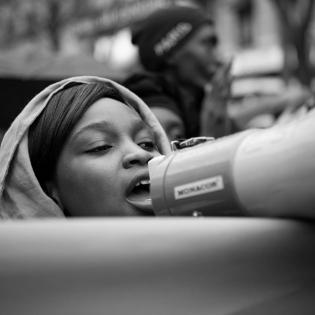In this lesson young people learn about the tools of advocacy for the common good. They investigate the characteristics of advocates and develop their own personal advocacy style.
Filter by subjects:
Filter by grades:
Filter by audience:
Filter by issue area:
Filter by content type:
Filter by resource type:
resource search
Learners explore personal identity traits and discuss how a community is strengthened by similarities and differences among them. They each write a biographical poem using the provided template and their discussion notes.
Groups analyze and define the concept of community. They identify the benefits and sacrifices involved in actions for the common good in their role as citizens.
Every day, we make choices about what to eat based on our health and what we like and can afford. As global citizens who care about the good of all, we can also be aware of making food choices based on our impact on an interconnected system.
Women around the world face challenges at all levels of income, education, global development, and age. While the world is slowly becoming more accepting of gender being a spectrum of expression and identity, anyone not clearly defined frequently faces judgment, discrimination, hate, even violence for embracing their true self in a world that doesn’t understand or tolerate ambiguity. This toolkit provides information, advocacy tools, lessons, and project ideas to help young people take action to change the worldview of gender and demand equity.
Carole Lindstrom’s book “We are Water Protectors” conveys a powerful message about the interconnectedness of all living things.
The youth learn how water safety is fragile. Even with good intentions, people and processes can cause major problems. They raise awareness of water issues and the importance of being vigilant about this shared need.
Photo Credit: ...
Learners identify ways for individuals, nonprofits, and governments to take action against excessive destruction of the rainforests of the world.
Researching from the perspective of one type of scientist, youth become experts on the attributes of a tropical rainforest as well as the threats to its health and impact on the globe. Youth work in teams of four to make a collage poster and presentation.

